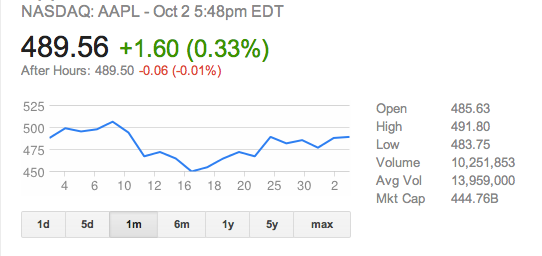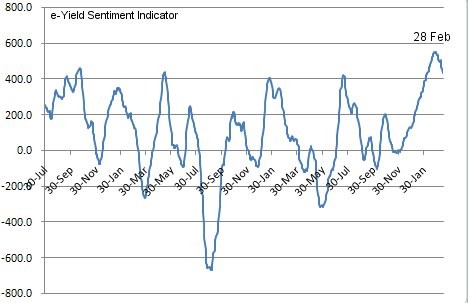What drives stock prices up and down
Post on: 16 Март, 2015 No Comment

Answers. 2 helpful answers below.
by jenniferprofitt on June 22nd, 2005
Stock prices change everyday by market forces. By this we mean that share prices change because of supply and demand. If more people want to buy a stock (demand) than sell it (supply), then the price moves up. Conversely, if more people wanted to sell a stock than buy it, there would be greater supply than demand, and the price would fall.
Understanding supply and demand is easy. What is difficult to comprehend is what makes people like a particular stock and dislike another stock. This comes down to figuring out what news is positive for a company and what news is negative. There are many answers to this problem and just about any investor you ask has their own ideas and strategies.
That being said, the principal theory is that the price movement of a stock indicates what investors feel a company is worth. Don't equate a company's value with the stock price. The value of a company is its market capitalization, which is the stock price multiplied by the number of shares outstanding. For example, a company that trades at $100 per share and has 1,000,000 shares outstanding has a lesser value than a company that trades at $50 but has 5,000,000 shares outstanding ($100 x 1,000,000 = $100,000,000 while $50 x 5,000,000 = $250,000,000). To further complicate things, the price of a stock doesn't only reflect a company's current value—it also reflects the growth that investors expect in the future.
The most important factor that affects the value of a company is its earnings. Earnings are the profit a company makes, and in the long run no company can survive without them. It makes sense when you think about it. If a company never makes money, they aren't going to stay in business. Public companies are required to report their earnings four times a year (once each quarter). Wall Street watches with rabid attention at these times, which are referred to as earnings seasons. The reason behind this is that analysts base their future value of a company on their earnings projection. If a company's results surprise (are better than expected), the price jumps up. If a company's results disappoint (are worse than expected), then the price will fall.
Of course, it's not just earnings that can change the sentiment towards a stock (which, in turn, changes its price). It would be a rather simple world if this were the case! During the dot-com bubble, for example, dozens of Internet companies rose to have market capitalizations in the billions of dollars without ever making even the smallest profit. As we all know, these valuations did not hold, and most all Internet companies saw their values shrink to a fraction of their highs. Still, the fact that prices did move that much demonstrates that there are factors other than current earnings that influence stocks. Investors have developed literally hundreds of these variables, ratios and indicators. Some you may have already heard of, such as the P/E ratio, while others are extremely complicated and obscure with names like Chaikin Oscillator or Moving Average Convergence Divergence (MACD).
So, why do stock prices change? The best answer is that nobody really knows for sure. Some believe that it isn't possible to predict how stocks will change in price while others think that by drawing charts and looking at past price movements, you can determine when to buy and sell. The only thing we do know as a certainty is that stocks are volatile and can change in price extremely rapidly.

The important things to grasp about this subject are the following:
1. At the most fundamental level, supply and demand in the market determine stock price.
2. Price times the number of shares outstanding (market capitalization) is the value of a company. Comparing just the share price of two companies is meaningless.
3. Theoretically earnings are what affect investors' valuation of a company, but there are other indicators that investors use to predict stock price. Remember, it is investors' sentiments, attitudes, and expectations that ultimately affect stock prices.
4. There are many theories that try to explain the way stock prices move the way they do. Unfortunately, there is no one theory that can explain everything.














